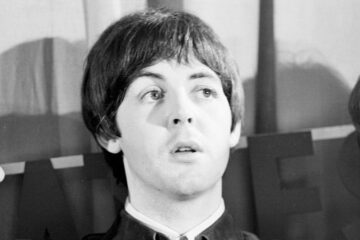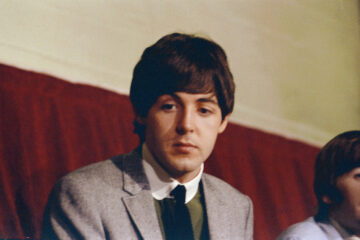For many rock fans, the idea of boy bands coming to the forefront in the 1990s felt like the antithesis of rock music. As opposed to people rising up and singing songs about going against the establishment, seeing Backstreet Boys and NSYNC laying claim to the charts that had once housed the titans of grunge felt like a huge step backwards. But for any of the naysayers who were critiquing everything that pinups like Justin Timberlake stood for, they need to remember the first collective to be called a boy band: The Beatles.
While hardened rock fans may not have liked to admit it, The Beatles were a perfect example of a boy-band-focused idea working at its best. The songs of John Lennon and Paul McCartney may have reshaped many pieces of rock ‘n’ roll history after the fact, but it’s the way they were marketed that put them on the same level as the teenage heartthrobs.
After playing the mean streets of Hamburg, the Fab Four initially were the definition of punk before Brian Epstein helped bring them into the public consciousness. Through the help of a carefully choreographed approach to their public persona, each member had a distinct personality, operating almost like a band of brothers whenever they appeared for interviews.
It’s not like the band didn’t know how to lean into the boy band aesthetic, either. While Paul McCartney may have been looking to make the music he wanted to hear, he also knew that the band would be more successful in making their songs accessible to a broader audience. By using key pronouns like ‘I’ and ‘you’ in their songs, the band knew that many girls in their audience would get the impression that they were singing to them directly.
Also, while others might claim that boy bands may not have written a single note of their own music, it’s not like The Beatles didn’t dip into cover songs now and again. Before George Martin had even entertained the idea of the group recording for him, the initial vision was for them to record songs that were given to them before Lennon and McCartney offered up ‘Please Please Me’.
Even looking at the band’s films, there are more than a few glimpses at what the boy-band formula would look like. Look no further than the ‘Can’t Buy Me Love’ sequence in A Hard Day’s Night, where the group run through a field, both paving the way for the modern music video as well as the free-spirited whimsy that went into the videos from the likes of One Direction.
Even though there is ample evidence suggesting The Beatles had boy band tendencies, does that mean that they should be criticised for it? Absolutely not. Just because an act is christened a boy band doesn’t mean that they are lacking in some form of quality, no matter which generation they are a part of. If anything, the group’s teenybopper act and overarching appeal most likely gave them a major advantage over their contemporaries.
By focusing on the group as a whole, every member having their own unique personality made them instantly recognisable to anyone listening to them. Even though any fairweather music fan couldn’t rattle off the names of the other non-Buddy Holly members of The Crickets, it would take those same people no time to rattle off the names of John, Paul, George and Ringo.
While the band would go on to revolutionise how most artists thought about music in the back half of the 1960s, that shouldn’t discount the fantastic music that they made in their early years, either. Regardless of them singing songs about empty platitudes like holding hands or abstract concepts like ‘Tomorrow Never Knows’, what mattered was their ability to translate their songs to their audience, making tracks that were both digestible and forward-looking at every turn.
Then again, this strong pushback towards boy bands may have alternative motives. Since most of the audiences screaming for The Beatles back in the day were made up of teenage girls, the male-centric modern lens of music criticism tends to treat the start of the bad’s career with disdain.
Were it not for those screaming girls, though, there’s a good chance that The Beatles would have never had the chance to become the legends they are today. It might be easy to sneer at the more innocent songs like ‘Love Me Do’, but the band needed to make a song like that before they could even hope to write tracks like ‘Hey Jude’ and ‘Let It Be’.
Even though the idea of the boy band might get a severe negative reaction from male fans because of its reputation, The Beatles are a classic example of what happens when the layers of pretension are brought down to hear what an artist has to say. No matter how much artists like the Backstreet Boys might send chills down rock fans’ spines, every one of their contemporaries was drawing the Fab playbook.




